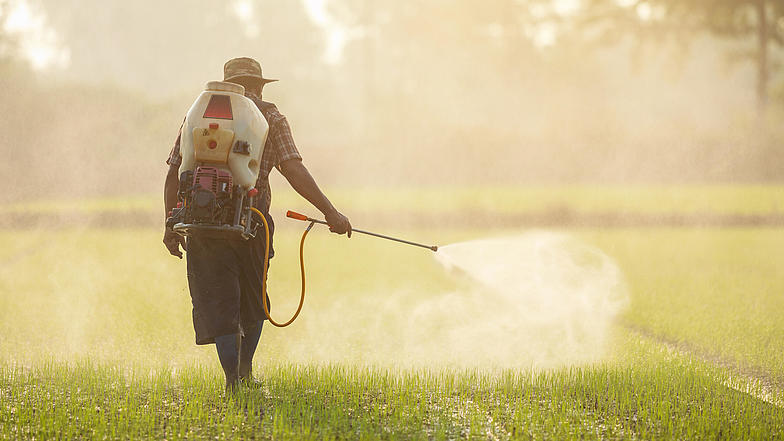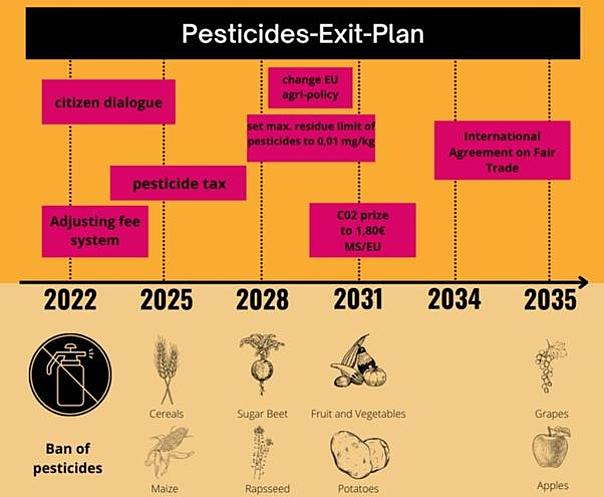Much and far-reaching action is needed from governments to achieve resilient, sustainable agriculture without pesticide use. The approach should not simply be to write down targets arrived at through heavy industry participation, but requires a concrete EU action plan with financial measures. The plan must be holistic because it requires policy adjustments in the areas of climate, agriculture, trade, education, research, cultivation and advertising.
Measures should aim to increase the cost of the current polluting agricultural system. This can be done by introducing pesticide taxes and carbon taxes and by increasing pesticide authorization fees. The EU should revise agricultural policy so that income goes up for farmers who convert to sustainable, pesticide-free agriculture. This can be done by making income support dependent not on land tenure but on labor. Policy should focus on supporting direct, local and regional trade. These and more measures are further explained in the Locked-in pesticides report starting on page 68.
We created a roadmap for each crop to eliminate pesticide use. The Locked-in pesticides report, starting on page 94, outlines what the future of each crop should ideally look like, what agronomic measures are needed to stop pesticide use, and what political tools can be used to do so.
For example, the cultivation of vegetables, nuts, olives and potatoes, with the right measures, could be pesticide-free in 9 years. Cereals could even be grown pesticide-free in as little as 3 years. Only vineyards and apple orchards require considerably more time, but even for these, pesticide-free cultivation could be a reality by 2035.

